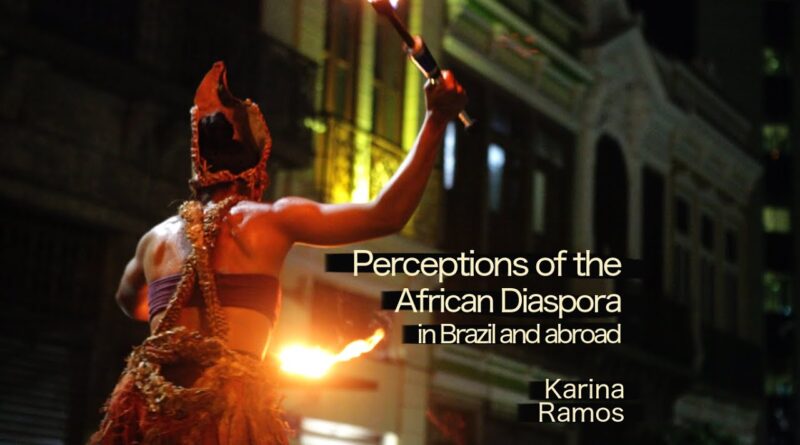Perceptions Of The African Diaspora In Brazil & Abroad w/ Karina Ramos
Audio Episode:
In this interview with Karina Ramos, historian and member the Brazilian Association of African Studies, we discuss the roots and contemporary struggles of Afro-Brazilian religious traditions and communities in Brazil (in particular Rio), and how contemporary forms of State and social oppression of these communities has manifested. This interview was recorded and filmed in Rio de Janeiro, with interpretation by Mirna Wabi-Sabi.
“Since the beginning of the 20th century, spaces of sociability and cultural manifestations of African matrix are attacked, black men and women are expropriated of their rights and their most basic conditions of existence. There is not an interval of time within the line of events in the history of Rio de Janeiro where blacks and their cultural manifestations have not suffered with public power.” ( Since Karina’s article was published in 2018, the forms of persecution experienced by spiritual communities of the African Diaspora in Brazil have increased with the election of far-right president Jair Bolsonaro. But as she points to in this interview, systemic oppression against these communities has existed in Brazil since its founding as a slave colony over 500 years ago.
Karina Ramos is a member of the African Research Group UERJ / UFRJ, of the African History Study Group (GEAH / PUC-Rio) and a member of the Brazilian Association of African Studies (ABRE-Africa). She has knowledge in the field of Intellectual History and in the areas of History of America and History of Contemporary Africa. Due to her experience as a daughter and granddaughter of priestesses of Candomblé and after the effective application of Law 10.639 / 03 that would make the teaching of indigenous and African histories in Brazil mandatory, Karina can reconnect to the African continent in her academic work. The ongoing research is the result of these reunions and resignifications, and she intends to combat the structural racism that limits the African people and their diaspora.
Mirna Wabi-Sabi was the interpreter for this interview and none of this would have been possible without her. Learn more about her work: medium.com/mirna-wabi-sabi
Terms:
– Candomblé: An ancestral African Religion of the African Diaspora, worshippers of Orixás.
– Orixás: Divine African ancestors. They represent Nature’s forces and have human-like characteristics such as personality, image and emotions. They are also expressed through color symbolism. Due to Colonial oppression, these Orixás were in some instances merged with the figures of Catholic saints as a self-preservation and disguise strategy
– Terreiro: Where Afro-Brazilian Religious ceremonies happen, and where offerings are given to Orixás. It can be described as a sort of shrine, except there is not construction, only an enclosed open space.
– Quilombo: Brazilian hinterland settlement founded by enslaved people of African descent who escaped.
Episode Notes:
– Read Karina’s article ‘In The Shrine Of Old Black Iaiá, Let’s Hail’ published at Gods & Radicals Press:
– Mirna mentions the book ‘O Que E Interseccionalidade?’ by Carla Akotirene:
– The song featured in this episode is “Yaô” by Pixinguinha.
WEBSITE:
PATREON:
DONATE:
DROP ME A LINE: Call (208) 918-2837 or
EVERYTHING ELSE:
source

